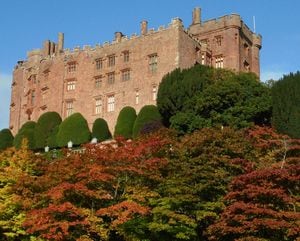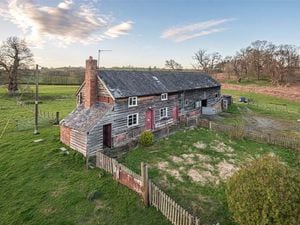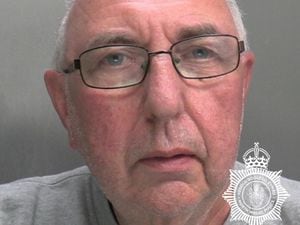Review of historical sites in wake of Black Lives Matter protests
A review of historical monuments and artefacts is being carried out in the wake of the Black Lives Matter protests.

A Welsh Government report listed Powis Castle near Welshpool and its past owners, the Clive family, as having links to the slave trade.
The report noted that Robert Clive, from Market Drayton, who made his fortune in India, has at least one street named after him in Glamorgan and that petitions were raised to remove his statues from Shrewsbury and London.
Lord Clive’s East India Company traded slaves and his wealth was spent on Powis Castle.
The family along with Chirk Castle, owned by Thomas Myddleton, were among several with links to Mid Wales named in the review ordered by First Minister Mark Drakeford following the death of George Floyd in the US, and the toppling of the statue of Edward Colston in Bristol during a series of protests.
In a statement Powys County Council said: “We are currently reviewing our historical artefacts, monuments and archive collections in light of the Black Lives Matters Campaign, and advice regarding this has been sought from the Culture and Sport Division of Welsh Government, the National Archives, the Federation of Museums & Art Galleries of Wales, and the National Library of Wales.
“Officers are also engaged in debate with museum, archives and arts colleagues across Wales to advance the conversation on structural racism by joining together to explore how we can follow up on recent statements of support with tangible actions to address racial diversity, equity, and inclusive environments.
“We are fully committed to reviewing our historical artefacts and records to ensure they embrace the values of equality, diversity and inclusion.
“We acknowledge we have much work to do, but as a custodian of the county’s history our aim is to promote and share the diverse stories within our collections to raise awareness of racial injustice. The Black Lives Matter protests across the world have reinforced the need for us to undertake this work to ensure we respect history without omitting vital context.”
The audit led by Cardiff councillor Gaynor Legall identified 209 monuments, buildings or street names which commemorate people who were directly involved with slavery and the slave trade or opposed its abolition.
It found that commemorations were often shown without any accompanying interpretation to address matters of contention.
The audit also unearthed commemorations to anti-slavery activists across Wales, such as Henry Richard in Tregaron, street names for Samuel Romilly and the Pantycelyn halls of residence at Aberystwyth University.
Hundreds of Powys residents have signed a national online petition calling for lessons about Empire to be taught in British schools.
The petition amassed more than 234,000 signatures, meaning it will be considered for a debate in Westminster.





